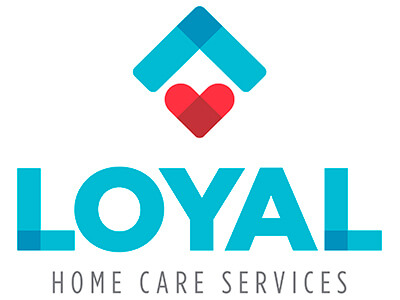When families in Worcester and across Massachusetts begin the difficult journey of finding care for a loved one, the checklist is often rooted in practical necessity. Is the medication being managed correctly? Can they bathe safely? Is their living environment free of hazards? These concerns are vital and understandable. Yet, there is a deeper, less visible threat to a person’s health that often goes unaddressed: the devastating impact of chronic social isolation.
The U.S. Surgeon General has likened the mortality impact of loneliness to smoking up to 15 cigarettes a day. For seniors and adults with disabilities, the risk factors are amplified by life transitions such as retirement, the loss of a spouse or friends, and mobility limitations. A house can be perfectly safe, but if it’s empty of consistent conversation, shared laughter, and daily companionship, it cannot truly be called a home. This is where the unique, person-centered model of Adult Foster Care (AFC) shines, offering a holistic solution that goes far beyond basic care to heal the human spirit.
The Loneliness Epidemic: Understanding the Depth of the Problem
It’s crucial to distinguish between solitude and isolation. Solitude can be a choice and can be peaceful. Isolation, however, is the distressing feeling of being disconnected from meaningful social relationships and community. Its effects are not just emotional; they are physiological. Studies have consistently linked chronic loneliness to:
- Increased risk of dementia by approximately 50%.
- Higher rates of depression, anxiety, and suicide.
- A 29% increased risk of heart disease and a 32% increased risk of stroke.
- A weakened immune system, making individuals more susceptible to infections.
When we view care through this lens, addressing social connection becomes not just a matter of compassion, but a critical component of overall health management.
The Limits of “Aging in Place” in an Empty Home
In-home care services are an invaluable resource for maintaining independence in a familiar setting. They provide essential, scheduled support with daily tasks. However, this model has inherent limitations in combating systemic loneliness. A caregiver may visit for a few critical hours, but what about the remaining 21 hours of the day? The silence between visits, the meals eaten alone, and the lack of spontaneous interaction can perpetuate a cycle of isolation. The very independence that in-home care supports can sometimes come at the cost of constant companionship. AFC addresses this fundamental gap by redefining the care environment itself.
The AFC Difference: A Prescription for Connection and Community
An Adult Foster Care home is not a clinical facility; it is an integrated family home. This foundational principle is what makes it so uniquely effective at fighting isolation.
- The Healing Power of Shared Daily Life: Instead of eating meals in solitude, your loved one becomes part of a family table—a place for sharing stories, discussing the day’s events, and building authentic relationships. This routine, face-to-face interaction is a core and natural part of the AFC experience, stimulating the mind and nurturing the soul.
- Companionship as a Cornerstone of Care: The AFC caregiver provides more than just physical assistance; they offer genuine companionship. The relationship evolves from a transactional one to a relational one—built on shared daily life, whether it’s watching a favorite TV show together, gardening in the backyard, or simply chatting over a cup of coffee. This emotional bond provides a sense of security and belonging that is often missing in other care models.
- Active Engagement, Not Just Observation: AFC families often naturally include their residents in the rhythm of family life. This means trips to the grocery store, attending a local community concert, celebrating birthdays and holidays, and having casual interactions with neighbors. This keeps your loved one actively connected to the wider world, combating the feeling of being “invisible” or “shut away” that can so often accompany aging or disability.
- A Renewed Sense of Purpose and Identity: Being part of a family unit provides a powerful antidote to the loss of role and identity that can come with life changes. It can be as simple as being asked for an opinion, helping fold the laundry, or reading a book to a grandchild. This sense of being needed, valued, and listened to is a profound medicine that restores a person’s sense of self-worth.
A Story of Reconnection: Robert’s Journey
Consider the story of Robert, a retired widower in Worcester. After his wife of 50 years passed away, his world gradually shrank to the confines of his quiet apartment. His family worried about his forgetfulness with medications, but they were more alarmed by his deepening withdrawal and signs of depression. Moving to an AFC home with a lively, multi-generational family didn’t just ensure his physical safety. It gave him a new lease on life. He found a captive audience for his incredible stories from his youth, started joining the family for weekly trips to the local library, and rediscovered his laughter while playing cards with his new housemates. The professional care he received was excellent, but it was the daily, meaningful human connection that truly facilitated his healing.
Making the Choice for Whole-Person Wellness
If your concerns for your loved one extend beyond physical safety to their emotional, mental, and social well-being, Adult Foster Care presents a powerful and compassionate option. It is a model designed to nurture the whole person—body, mind, and spirit.
Choosing AFC is about more than finding a safe place for your loved one to live. It is an active choice to provide them with a community, a purpose, and a family. It is a decision to fight the loneliness epidemic not with medication, but with relationship, and to offer an environment where they can not just be cared for, but can truly thrive.
Understanding the difference between various care models is the first step. If you are exploring how the compassionate, community-based model of Adult Foster Care could be the right solution for your family in Massachusetts, we encourage you to learn more. Contact Loyal Health Care Services today to speak with a specialist and discover the possibilities for a brighter, more connected future for your loved one.




